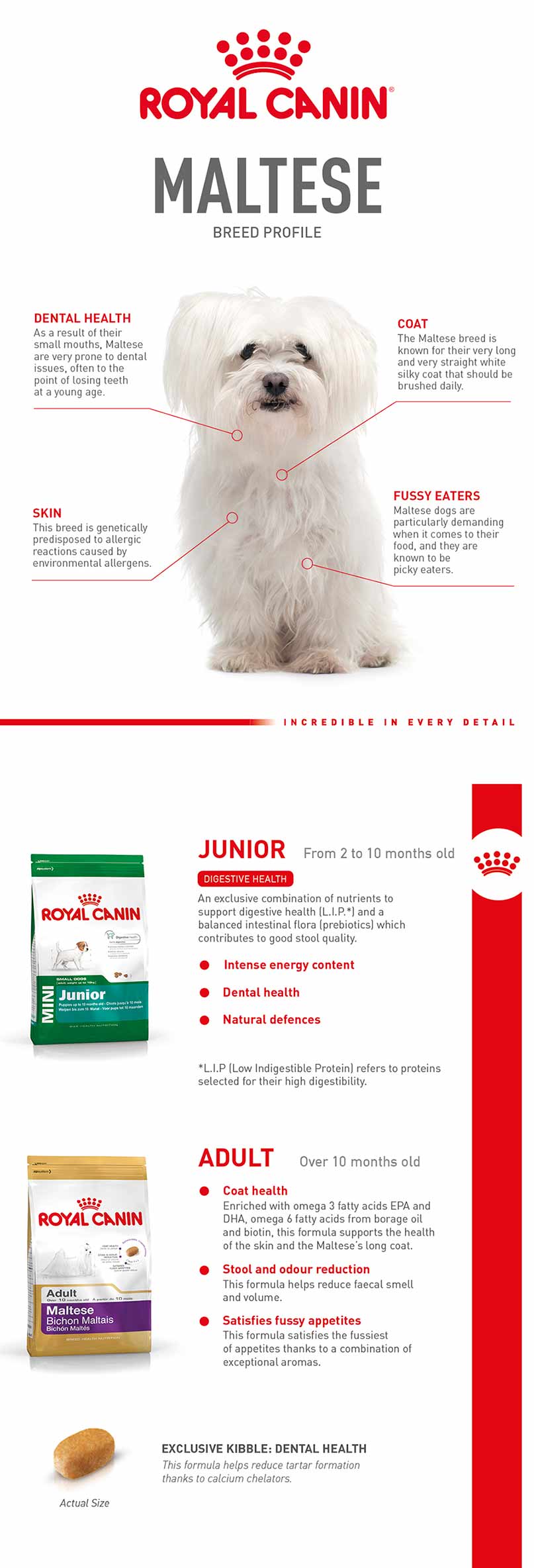Looking to keep your Maltese puppy healthy and happy? Did you know that their diet plays a crucial role in their overall well-being? These tiny fluffballs require a special diet that suits their sensitive stomachs and promotes strong growth. So, what do you feed a Maltese puppy to ensure they thrive?
When it comes to feeding a Maltese puppy, it’s important to provide them with high-quality small breed puppy food. These little dogs have higher metabolism rates and nutritional needs compared to larger breeds. Look for a premium puppy food that contains real meat as the first ingredient, ensuring they receive the necessary protein for proper development. Providing small, frequent meals throughout the day is also recommended to prevent hypoglycemia, a common issue in toy breeds like the Maltese. By taking these steps, you can nourish your Maltese puppy with the right nutrients they need to grow into a healthy adult dog.

Feeding Your Maltese Puppy: A Comprehensive Guide
Welcome to our comprehensive guide on what to feed your Maltese puppy. In this article, we will provide you with detailed information and recommendations to ensure your furry friend gets a healthy and balanced diet. With their small size and unique nutritional needs, Maltese puppies require special attention when it comes to their diet. Read on to learn more about the best foods, feeding schedule, and important tips to keep your Maltese puppy happy and well-nourished.
Understanding Your Maltese Puppy’s Dietary Requirements
Before we dive into specific food recommendations, it is important to understand the dietary requirements of Maltese puppies. These adorable little dogs have high energy levels and require a diet that is rich in protein, healthy fats, and essential vitamins and minerals. A balanced diet is crucial for their growth, development, and overall well-being. Here are some key points to consider:
The Importance of High-Quality Protein
Protein is an essential component of your Maltese puppy’s diet. It is responsible for building strong muscles, repairing tissues, and supporting overall growth. Look for high-quality protein sources such as lean meats (chicken, turkey, beef), fish, and eggs. Opt for real meat rather than meat by-products or fillers. Aim for a protein content of at least 25% in the food you choose.
In addition to protein, your Maltese puppy also needs healthy fats in their diet. Good sources of fats include fish oil, flaxseed oil, and chicken fat. These fats provide energy, support brain development, and help maintain a healthy coat and skin.
The Role of Carbohydrates and Fiber
Carbohydrates are an important source of energy for your Maltese puppy. Look for complex carbohydrates such as brown rice, sweet potatoes, and whole grains. These provide sustained energy and are easier to digest compared to simple carbohydrates. Fiber is also important for digestion and helps maintain a healthy digestive system. Vegetables and fruits are great sources of fiber for your puppy.
Recommended Foods for Maltese Puppies
Now that you understand the dietary requirements of your Maltese puppy, let’s explore some recommended food options:
1. High-Quality Dry Dog Food
A high-quality dry dog food specifically formulated for small breed puppies is a convenient and nutritious option for your Maltese puppy. Look for brands that use real meat as the first ingredient and contain a good balance of protein, fats, and carbohydrates. Read the ingredient list and avoid foods that contain artificial preservatives, colors, or flavors.
When choosing dry dog food, consider the size of the kibble. Maltese puppies have small mouths, so opt for smaller-sized kibble that is easy for them to eat and digest.
2. Wet Dog Food
Wet dog food can be a great addition to your Maltese puppy’s diet. It provides moisture and can be especially beneficial for puppies who are reluctant to drink enough water. Look for wet dog food options that are high in protein and contain real meat. It’s important to note that wet food should not be the sole source of nutrition for your puppy, but rather a complement to a balanced diet.
3. Homemade Food
If you prefer to prepare homemade meals for your Maltese puppy, it is essential to consult with a veterinarian or canine nutritionist to ensure you are providing a balanced and nutritious diet. Homemade meals can be a great option as you have control over the ingredients and can customize the diet based on your puppy’s specific needs. Include lean meats, vegetables, fruits, and whole grains in the homemade meals.
4. Treats
Treats are an important part of training and rewarding your Maltese puppy. Opt for healthy treats that are low in calories and made with quality ingredients. Look for treats specifically designed for small breed puppies to ensure they are the appropriate size. It’s important not to overdo it with treats as they can contribute to weight gain if given in excess.
Feeding Schedule and Tips
1. Establish a Consistent Feeding Schedule
Establishing a consistent feeding schedule for your Maltese puppy is important for their digestion and overall routine. Puppies typically require more frequent meals compared to adult dogs. Aim for three to four small meals throughout the day. Set specific meal times and stick to them as closely as possible.
2. Monitor Your Puppy’s Weight
Maltese puppies are prone to obesity, so it’s important to monitor their weight and adjust their portion sizes accordingly. Follow the feeding guidelines provided by the food manufacturer and consult with your veterinarian if you have any concerns.
3. Gradually Transition to New Foods
If you decide to switch your Maltese puppy’s food, it’s important to do so gradually. Sudden changes in diet can cause digestive upset. Start by mixing a small amount of the new food with the old food and gradually increase the ratio over a week or two until you have fully transitioned to the new food.
Conclusion
Feeding your Maltese puppy a balanced and nutritious diet is essential for their overall health and well-being. Choose high-quality foods that meet their unique nutritional needs, and establish a consistent feeding schedule. Monitor their weight and adjust portion sizes accordingly, and remember to consult with your veterinarian for personalized advice. By providing your Maltese puppy with the right diet, you are setting them up for a happy and healthy life.
What to Feed a Maltese Puppy? – Key Takeaways
- Choose high-quality commercial puppy food specifically formulated for small breeds like Maltese.
- Feed the puppy small, frequent meals to prevent digestive issues.
- Avoid feeding your Maltese puppy human foods that can be harmful, including chocolate, onions, and grapes.
- Provide fresh water at all times to keep your puppy hydrated.
- Consult with your veterinarian for guidance on the best feeding schedule and portion sizes for your Maltese puppy.
Frequently Asked Questions
Welcome to our Frequently Asked Questions section, where we’ll answer some common queries about feeding your Maltese puppy. From dietary requirements to meal frequency, we’ve got you covered.
1. How often should I feed my Maltese puppy?
For a Maltese puppy, it’s best to provide small, frequent meals throughout the day. Aim for three to four meals, spaced evenly apart, to keep their energy levels steady. Feeding them smaller portions at regular intervals helps prevent bloating and promotes proper digestion.
Remember, puppies have smaller stomachs and higher metabolic rates, so they require more frequent feeding compared to adult dogs. As your Maltese puppy grows, you can gradually transition them to eating two meals a day.
2. What should I feed my Maltese puppy?
A well-balanced diet is crucial for your Maltese puppy’s growth and development. Opt for high-quality, commercially prepared puppy food that is specifically formulated for small breeds. Look for options that list a protein source, such as chicken or fish, as the main ingredient.
Avoid feeding your Maltese puppy human food, especially those that are toxic to dogs, like chocolate, onions, and grapes. Stick to their specialized puppy diet and consult with your veterinarian for recommendations on brands and feeding guidelines.
3. Can I give my Maltese puppy treats?
Yes, you can give your Maltese puppy treats, but do so in moderation. Treats can be a great tool for training, rewarding good behavior, or simply showing love to your furry friend. Look for small-sized treats that are made specifically for puppies.
Remember to account for the treats’ calorie content when considering your puppy’s overall daily intake. Too many treats can lead to weight gain, so it’s important to strike a balance between treats and their regular meals.
4. Should I feed my Maltese puppy wet or dry food?
Both wet and dry food options can be suitable for your Maltese puppy, so choose whichever works best for you and your furry friend. Dry kibble is convenient and helps keep their teeth clean by reducing tartar buildup. It also tends to be more cost-effective and has a longer shelf life.
However, if your Maltese puppy prefers wet food or has difficulty chewing, you can opt for canned or pouch food. Just make sure it meets their nutritional requirements and consult your veterinarian for specific recommendations.
5. When should I switch from puppy food to adult dog food?
The transition from puppy food to adult dog food usually occurs around the age of one year. However, this timeline may vary depending on your Maltese puppy’s growth and development. Consult your veterinarian for guidance on when to make the switch.
When transitioning to adult dog food, gradually mix small amounts of the new food with their puppy food over a period of one to two weeks. This allows their digestive system to adjust smoothly to the new diet and helps prevent any gastrointestinal upset.

Summary
Feeding a Maltese puppy is important for their growth and overall health. You should choose high-quality dog food specifically made for puppies. Avoid feeding them human food as it can be harmful. Provide fresh water and establish a feeding schedule.
Additionally, consider the portion size based on their age and weight. Treats can be given in moderation, but be careful not to overfeed. Lastly, consult with a veterinarian for guidance on nutrition and any specific dietary needs your Maltese puppy may have. Remember, a well-balanced and proper diet is vital for their well-being!
